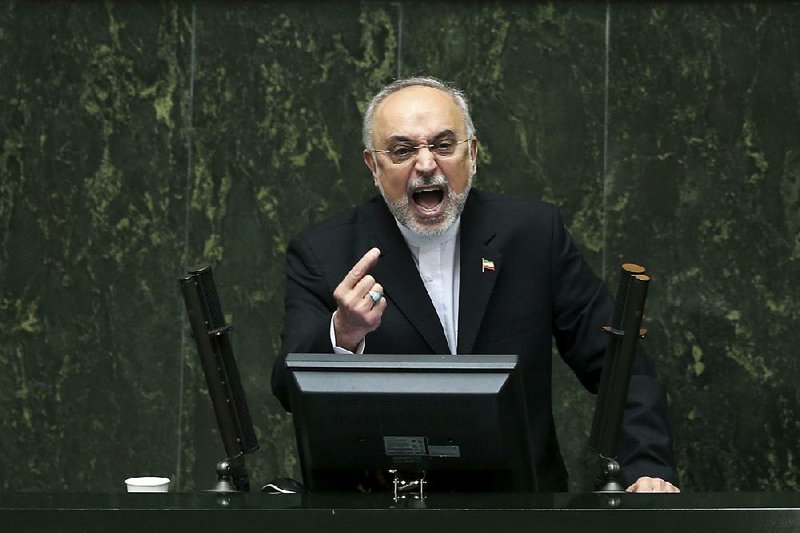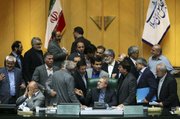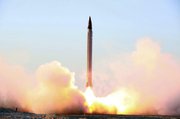TEHRAN, Iran -- Iran's parliament on Sunday approved an outline of a bill that would allow the government to implement the nuclear deal it reached with the U.S. and other world powers, the official IRNA news agency said.
Meanwhile, state TV announced that Iran had successfully test-fired a new long-range ballistic missile, the first such test since the nuclear deal was reached in July.
The bill allows the government to withdraw from implementing the agreement if world powers do not lift sanctions, IRNA said. Final approval of the bill is expected later this week after further discussions.
The deal would curb Iran's nuclear program in return for the lifting of international sanctions. Western nations have long suspected Iran of secretly pursuing nuclear arms, allegations denied by Tehran, which says its nuclear program is for purely peaceful purposes.
"The government should stop its voluntary cooperation in implementation of the deal if the other side fails to remain committed to lifting sanctions," the bill says. It says the response should be the same if new sanctions are imposed or previous ones restored.
IRNA said 139 lawmakers out of 253 present voted in support of the bill. The chamber has 290 seats.
The session was unusually tense, with hard-liners repeatedly trying to prevent a vote. Iran's supreme leader, Ayatollah Ali Khamenei, who makes all final decisions on key policies, has said it is up to parliament to approve or reject the deal.
Lawmaker Ruhollah Hosseinian, an opponent of the deal, said parliament needs to discuss it in detail. Until now, the deal has only been reviewed by a special parliamentary committee.
"Every [international] agreement must be approved and passed by the parliament. Otherwise, it won't be legal," Hosseinian said.
Iranian Defense Minister Gen. Hossein Dehghan, meanwhile, hailed the new surface-to-surface missile, saying it "will obviously boost the strategic deterrence capability of our armed forces."
The "ground-to-ground ballistic missile" was fully designed and built by Iran and can be guided and controlled until it hits its target, Dehghan was quoted as saying by IRNA. The report had no information about the missile's range or the date and location of the test. State TV showed footage of the launch.
Dehghan said the missile, named Emad, or pillar in Farsi, was a technological achievement for Iran.
The United Nations resolution endorsing the nuclear deal called on Iran not to undertake any activity related to ballistic missiles capable of delivering nuclear weapons. Iran says none of its missiles are designed for that purpose.
Since 1992, Iran has boasted an indigenous military industry, producing missiles, tanks and light submarines. The government frequently announces military advances that cannot be independently verified.
The Islamic Republic already claims to have surface-to-surface missiles with a range of 1,250 miles that can hit Israel and U.S. military bases in the region.
The test could further strain Iran's ties with oil-rich Arab monarchies, which accuse Iran of seeking to expand its influence in the Middle East.
In Washington, President Barack Obama's administration said it is monitoring reports about the test. "We will take appropriate actions at the United Nations if these tests violate any existing UN Security Council resolutions," John Kirby, a State Department spokesman, said in a statement.
"We won't seek permission from anyone to increase our defense power and our missile capabilities," IRNA cited Dehghan as saying. "The Emad missile is an outstanding example of this."
Information for this article was contributed by Golnar Motevalli, Nafeesa Syeed, Ahmed Feteha and David McLaughlin of Bloomberg News.
A Section on 10/12/2015


